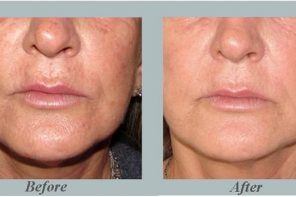WHAT IS PROLOTHERAPY?
Prolotherapy is also known as “proliferation therapy,” “regenerative injection therapy,” or “proliferative injection therapy”. Prolotherapy is a treatment that involves the injection of natural substances into painful areas to stimulate the body’s own repair mechanisms to strengthen and heal injured structures. Such structures can become weak as a result of trauma or a recurring abnormal stress, such as with poor posture or work related repetition of movement. When these structures become weak , unable to support normal amounts of work or activity, the nerves that exist within the attachments of these structures become unduly stretched or overstimulated, leading very often to pain. Prolo treatment attempts to more permanently strengthen the “weld” of weak and disabled tendons and ligaments to bone and stimulating the production of new fibrous tissue cells within the area of disability.
HOW IS PROLOTHERAPY DONE?
Prolotherapy treatments consist of injecting an irritant (Dextrosepharmaceutical grade sugar water) into the painful area or joint. This creates a short duration of inflammation and stimulates the immune system’s own healing mechanism to produce collagen and cartilage. The new collagen and cartilage strengthens and restores joints and supporting soft tissue, reducing or eliminating many different types of pain. The maximum benefit of each treatment is essentially complete about four to six weeks after the injections.
WHO IS A GOOD CANDIDATE FOR REGENERATIVE PROLOTHERAPY?
Good candidates for prolotherapy include people who have joint or muscle pain that has not responded well to other treatments, such as physical therapy, manual adjustments or massage, cortisone injections or surgery. The root causes of the pain can be wide ranging, including, for example: osteoarthritis, sports injuries, postsurgical complications, ligament laxity from hypermobility, and direct trauma caused by an event such as a fall or car accident. Ligament injury is presumed to be the preliminary cause of joints that become degenerated. This along with the fact that most degenerated joints have tenderness at ligament attachments around the joint, account for the fact that degenerative arthritis and degenerated structures typically respond beautifully to Prolotherapy.
CONDITIONS THAT RESPOND WELL TO PROLOTHERAPY:
- Wrist, thumb, & hand pain: arthritis, ligament injuries and ganglion cysts.
- Arm and elbow pain: epicondylitis, tennis elbow, golfer’s/thrower’s elbow andcarpal tunnel.
- Shoulder pain: rotator cuff tear, frozen shoulder and impingement syndromes.
- Neck pain: whiplash Injuries, arthritis pain, ligament injuries, spinal subluxations, migraines and headaches.
- Jaw pain: TMJ Syndrome (grinding and clenching of the teeth, locking of the jaw, pain)
- Back pain: chronic low back pain, spondylolisthesis, sacroiliac laxity, subluxations, degenerative disk disease and disk hernìations.
- Hip pain: degenerative hip disease, bursitis and groin sprain.
- Sacroiliac pain:: sciatica, arthritis and coccyx pain.
- Knee pain: ligament injury (ACL/PCL), meniscus tears, osteoarthritis of the knee, lax or partially torn ligaments and kneecap pain.
- Foot, ankle and heel pain: ankle sprains, runner’s ligament injuries, plantar fasciitis (heel pain, arch pain), bunions, toe pain and bone spurs.
- General: scar tissue adhesions, post surgery pain, pregnancy back pain, myofascial pain syndrome, any unresolved joint pain and patients wanting to avoid joint surgery.
WHAT ARE THE RISKS WHEN WHEN RECEIVING PROLOTHERAPY?
Prolotherapy is a relatively safe procedure. Small risk of infection exists.
With a prolo treatment one can expect bruising, redness, swelling, inflammation, some increase in pain. Depending on the area being treated the main risk is infection, although the risk of infection is very small, typically in the order of 1/1000 to 1/10,000. Thoroughly cleaning with an antibiotic solution minimizes the risk of infection.





